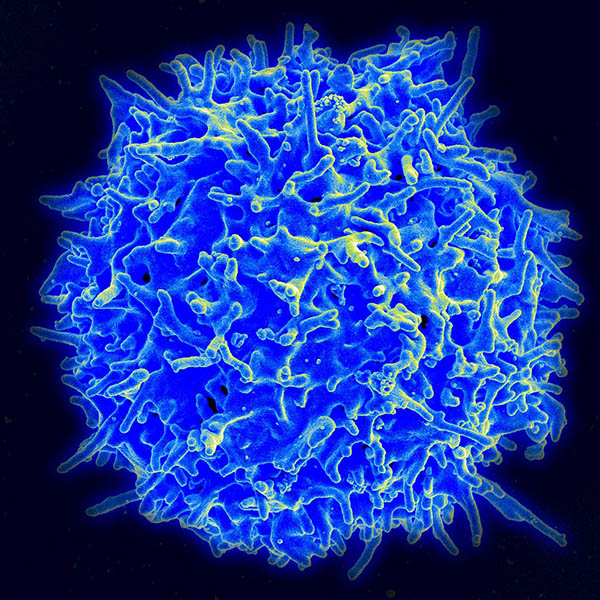IRP researchers uncover new details on rare immune disease
Idiopathic CD4 lymphocytopenia leaves immune system vulnerable to other diseases, cancers
In an 11-year study, researchers at the National Institutes of Health have further characterized idiopathic CD4 lymphocytopenia (ICL), a rare immune deficiency that leaves people vulnerable to infectious diseases, autoimmune diseases and cancers. Researchers observed that people with the most severe cases of ICL had the highest risk of acquiring or developing several of the diseases associated with this immune deficiency. This study, published in the New England Journal of Medicine, was led by Irini Sereti M.D., M.H.S., and Andrea Lisco, M.D., Ph.D., of the HIV Pathogenesis Section in the Laboratory of Immunoregulation at the National Institute of Allergy and Infectious Diseases (NIAID), part of NIH, and conducted at the NIH Clinical Center.
ICL is a condition marked by too few CD4+ T-cells, which are a type of white blood cell. The clinical definition of ICL is a CD4+ T-cell count of less than 300 cells per cubic millimeter (mm³) of blood for at least six weeks, in the absence of any disease or therapy associated with reduced white blood cells. Unlike HIV, a virus that suppresses the immune system if left untreated, there is no evidence that ICL is transmitted from person to person, and it has no known cause. There are limited therapeutic options for ICL.
In this observational study, the NIAID researchers quantified immune cells and noted the presence of opportunistic infections—infections that typically only affect people with suppressed immune systems—and other clinical conditions among 91 participant volunteers with ICL. The most prevalent opportunistic infections were human papillomavirus-related diseases (in 29 percent of participants), cryptococcosis (24 percent), molluscum contagiosum (9 percent), and mycobacterial diseases other than tuberculosis (5 percent). Participants with CD4+ T-cell counts below 100 cells per mm³ had a more than five-fold higher risk of opportunistic infections than those with CD4+ T-cell counts above 100 cells. Cancer risk was also higher in individuals with the lowest CD4+ T-cell counts, but the risk of autoimmune disease was lower.

Scanning electron micrograph of a human T cell from the immune system of a healthy donor. In multiple sclerosis, certain kinds of T cells are involved in the immune system’s attack on the central nervous system.
This page was last updated on Thursday, May 4, 2023